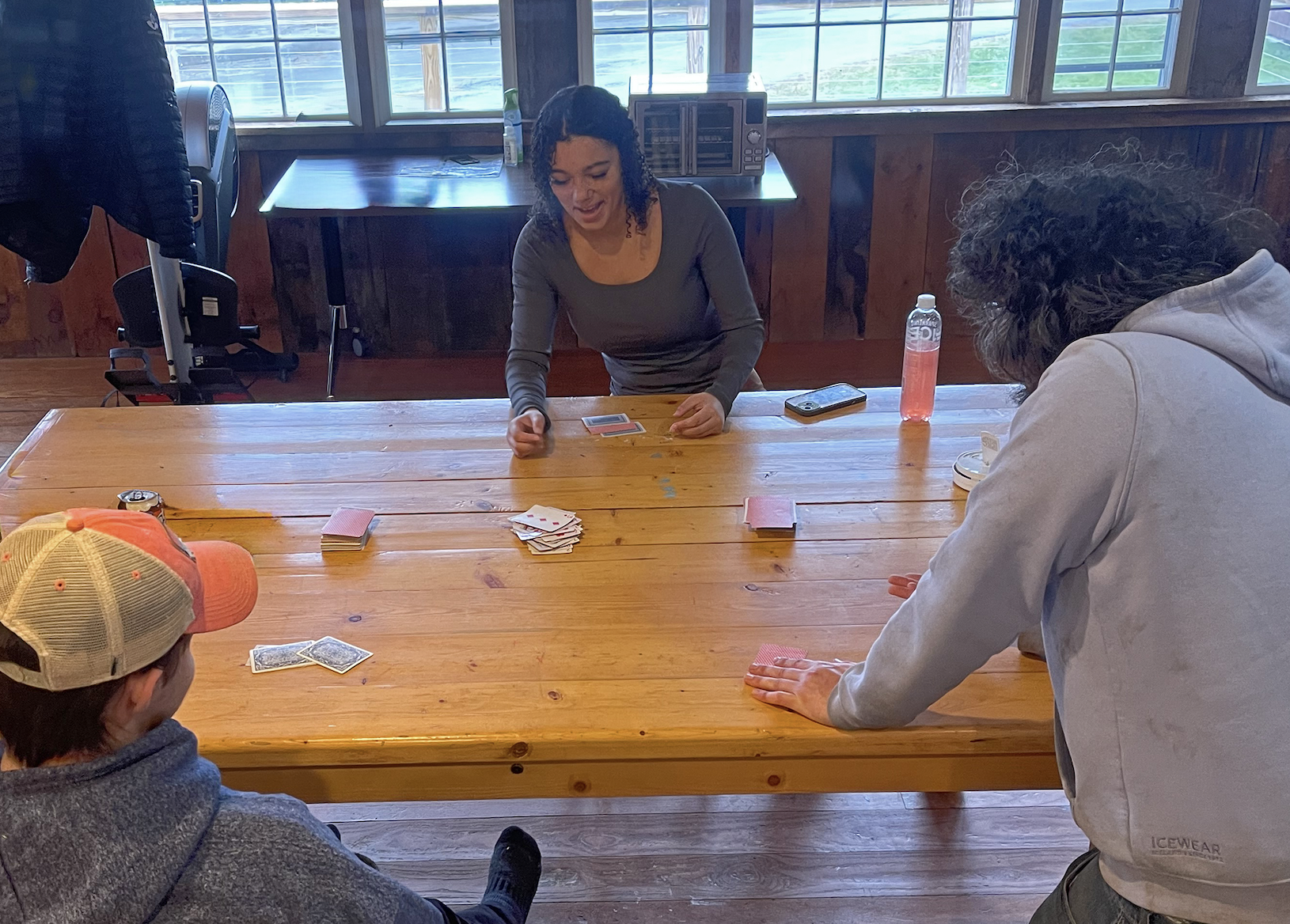How We Set Routines for Belonging and Growth
Brittany Dietz is The Trade’s assistant director of home life and lives on-site with apprentices. As a constant presence at the lodge, she works one-on-one with each apprentice to make sure they have what they need to accomplish their goals. Together, they grow and learn as they focus on structuring daily life for success. Brittany has more than a decade of experience in education and most recently worked as a youth support specialist for Grafton County.
At The Trade, we know daily routines create the foundation for autonomy, connection, and wellness for apprentices. They serve as a predictable element of our program, designed to encourage a sense of belonging and the development of independence. We want our apprentices to feel invited into the community, to contribute with others, and to feel capable on their own terms.
How do we do it?
Expectation: When apprentices know what needs to be completed in a certain time frame, there’s less friction and less uncertainty. We use time blocks to give them autonomy in how and when they complete tasks. For example, from 3-5:30 pm every day, apprentices take free time and can do as they wish. We have the expectation that they take care of any post-work personal tasks (unpacking lunch, showering, etc.) and complete any self-care needed to rejoin the group at 5:30 pm for our communal meal preparation.
Cooking together is always one of the highlights of the day, and we follow a seasonal menu. We’re transitioning to our winter menu that will feature a mix of staff and apprentice-inspired recipes. Right now, apprentices love making homemade pizza, and they also make a great pot roast.
Anchoring: To help apprentices adjust to the demands of a 40-hour work week, we use what we call anchor points on weekdays:
Leave for work at 7 am
Return from work at 3 pm
Communal dinner prep at 5:30 pm
Quiet hours from 10:30 pm-6 am.
Anchor points provide a good flow for our day. Apprentices don’t have to figure out what to do next, and free time helps them focus so they can show up for each scheduled activity. It’s important to have a rhythm for our group—it helps develop a sense of belonging when everyone follows the same schedule, while still encouraging independence.
Autonomy through individual tasks and responsibilities: Our structure gives apprentices a framework, but within it they are free to experiment to see what works for them. Apprentices are not being micromanaged; they’re being supported. There is less risk in trying new things when you have a supportive, structured community to fall back on.
One of our apprentices initially struggled to get ready and out the door for work on time. To problem solve, we met with our occupational therapist to develop a morning checklist. The apprentice is still in charge of their morning, but we’re here to support by making sure they have what they need to complete the checklist.
Rest & renewal: Quiet hours signal that it’s not just about work, but also about recovery. The transition into rest is built in, not left to chance.
On the weekends, apprentices have more space for rest and relaxation, but we still have some anchor points to provide structure. At 10 am on Saturday, they come together to prepare a crockpot meal for dinner, and on Sunday, they use the time to clean up the living space. Afternoons are open for fun activities, and we meet back at home around 5:30 pm.
By establishing clear expectations and defined time frames, we help apprentices reduce cognitive load and enhance executive functioning. Over time, our anchor points become embedded in daily routines, helping apprentices strengthen the executive functioning skills they need for success in work, relationships, and independent living.

